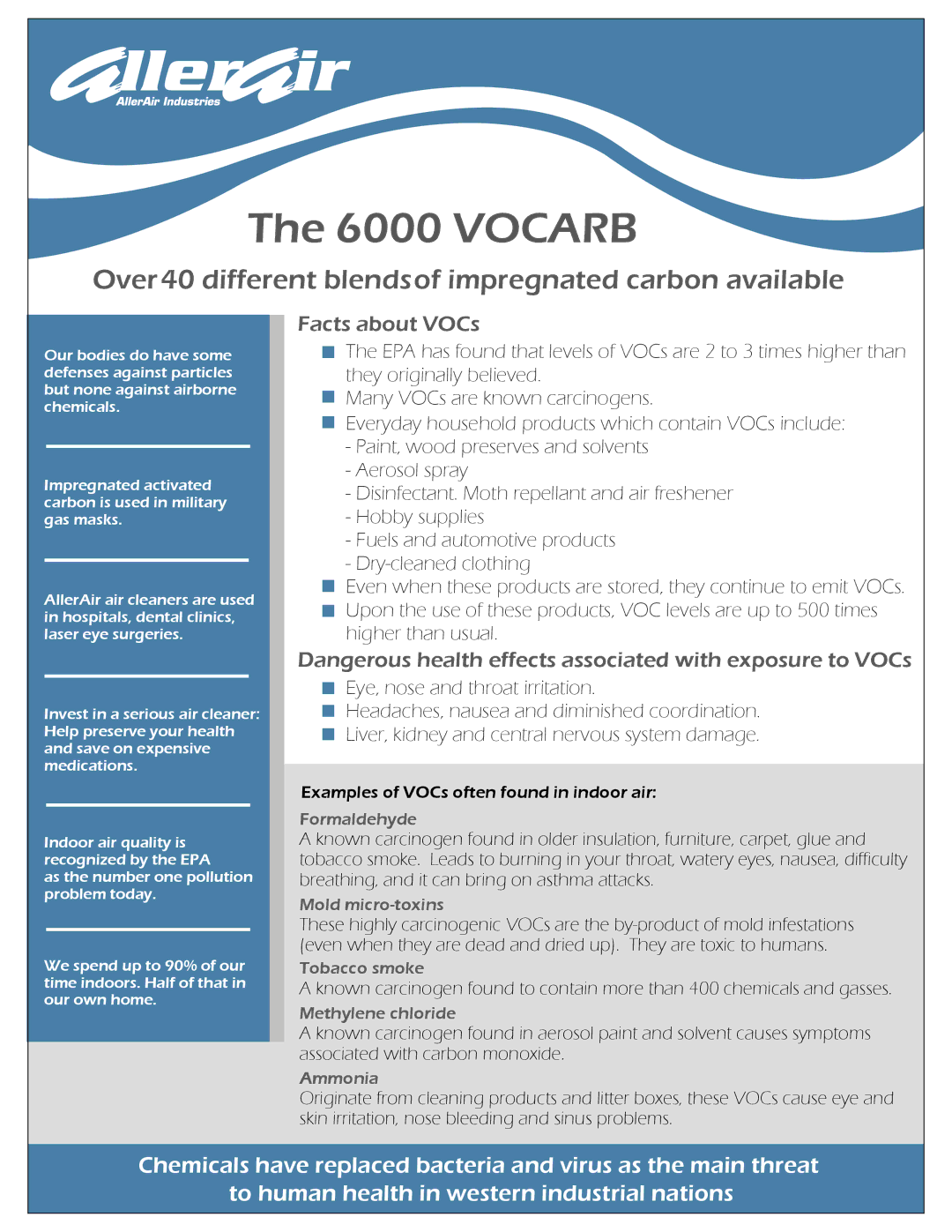
The 6000 VOCARB
Over40 different blendsof impregnated carbon available
Our bodies do have some defenses against particles but none against airborne chemicals.
Impregnated activated carbon is used in military gas masks.
AllerAir air cleaners are used in hospitals, dental clinics, laser eye surgeries.
Invest in a serious air cleaner: Help preserve your health and save on expensive medications.
Indoor air quality is recognized by the EPA
as the number one pollution problem today.
We spend up to 90% of our time indoors. Half of that in our own home.
Facts about VOCs
The EPA has found that levels of VOCs are 2 to 3 times higher than they originally believed.
Many VOCs are known carcinogens.
Everyday household products which contain VOCs include:
-Paint, wood preserves and solvents
-Aerosol spray
-Disinfectant. Moth repellant and air freshener
-Hobby supplies
-Fuels and automotive products
-
Even when these products are stored, they continue to emit VOCs. Upon the use of these products, VOC levels are up to 500 times higher than usual.
Dangerous health effects associated with exposure to VOCs
Eye, nose and throat irritation.
Headaches, nausea and diminished coordination.
Liver, kidney and central nervous system damage.
Examples of VOCs often found in indoor air:
Formaldehyde
A known carcinogen found in older insulation, furniture, carpet, glue and tobacco smoke. Leads to burning in your throat, watery eyes, nausea, difficulty breathing, and it can bring on asthma attacks.
Mold micro-toxins
These highly carcinogenic VOCs are the
Tobacco smoke
A known carcinogen found to contain more than 400 chemicals and gasses.
Methylene chloride
A known carcinogen found in aerosol paint and solvent causes symptoms associated with carbon monoxide.
Ammonia
Originate from cleaning products and litter boxes, these VOCs cause eye and skin irritation, nose bleeding and sinus problems.
Chemicals have replaced bacteria and virus as the main threat to human health in western industrial nations
